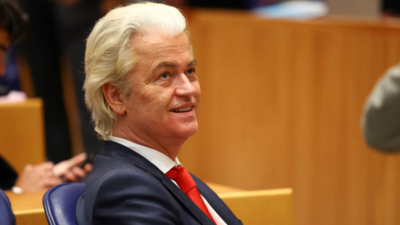ARTICLE AD BOX

The Netherlands has been thrown into political upheaval after Geert Wilders, the far-right populist leader of the Party for Freedom (PVV), pulled his party out of the ruling coalition over disagreements on immigration and asylum policy.
This decision, made less than a year after the government was formed, forced Prime Minister Dick Schoof to resign and triggered the collapse of the most right wing administration in Dutch history. Wilders, often dubbed the “Dutch Trump,” cited his unyielding stance on asylum as the reason behind his party’s withdrawal, marking another dramatic turn in his long and polarising political career.
Geert Wilders: A polarising and popular figure in Netherlands
Geert Wilders, 61, is one of the most recognised figures in European far right politics.
He left the liberal conservative VVD in 2004 to establish the PVV, shaping it into a platform for his anti-Islam, anti-immigration beliefs. Often controversial, Wilders has repeatedly called for banning the Quran and Islamic schools and has openly criticised Dutch multiculturalism. His provocative rhetoric and polarising stances have kept him at the forefront of Dutch politics for two decades, despite multiple legal and political setbacks.
Shocking win of 2023 that changed everything
In November 2023, Wilders led the PVV to a surprise victory, securing 37 seats and becoming the largest party in parliament. Although coalition partners blocked him from becoming prime minister due to his extreme views, Wilders held significant influence over policy from behind the scenes. The resulting government, a fragile coalition between the PVV, VVD, NSC and BBB, was always tense, and the immigration dispute only widened existing cracks.
The immigration dispute that broke the government
At the heart of the collapse was Wilders’ hardline 10-point asylum plan. His proposals included deporting all Syrian refugees, militarising borders, suspending EU asylum quotas and banning refugee family reunification. Legal experts argued that many of these violated international human rights agreements. When his coalition partners rejected the proposals, Wilders announced that all PVV ministers would resign, triggering the government's collapse.
Fury from coalition partners
Coalition leaders condemned Wilders' actions as reckless and self-serving. Dilan Yeşilgöz of the VVD called his withdrawal “super irresponsible,” while other leaders accused him of prioritising personal power over national stability. Prime Minister Dick Schoof described the move as “unnecessary and irresponsible,” lamenting the breakdown of consensus during a time of global instability.
What happens next for the Netherlands?
With the PVV’s exit, the coalition lost its majority and the Dutch government now operates in caretaker mode. New elections are expected in the autumn. The crisis has also delayed major international decisions, including preparations for a NATO summit and defence budget commitments. Meanwhile, Wilders has vowed to return even stronger in the next election, renewing ambitions to lead the country on his own terms.



.png)
.png)
.png)
















 1 day ago
5
1 day ago
5









 English (US) ·
English (US) ·